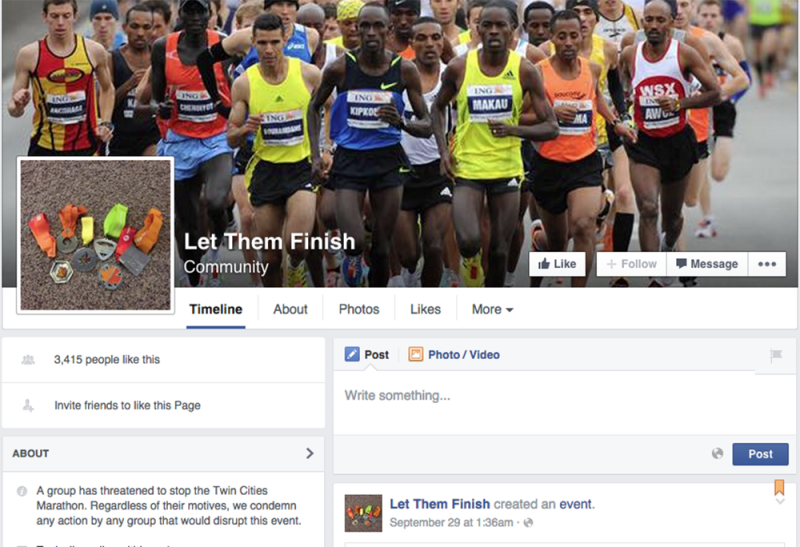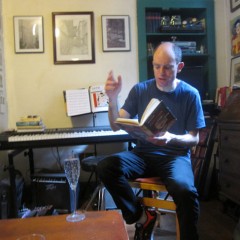Today in Minneapolis, runners will compete in the Medtronic Twin Cities Marathon. Usually, this event would be of little interest to me, as it involves two subjects that I actively find boring: Minnesota and long-distance running. But thanks to Facebook and a long-forgotten conservative college acquaintance, I was let on to a firestorm brewing in the Twin Cities:

It’s ridiculous enough that we’ve allowed these protests to disrupt shopping at the MOA on the busiest Saturday of the holiday season, the State Fair, and transportation to a regular season Vikings game. Protesting is a right, but disrupting commerce and public events is not. I hope the authorities have the guts to stand up to this nonsense and detain/arrest anyone and everyone getting in the way of people completing the marathon. Disruptive and unlawful protests are divisive and counterproductive.
– Facebook post by Minneapolis resident and former college dorm-mate
The story: The affiliate group of the Black Lives Matter (BLM) movement in St.Paul, Minnesota announced a few weeks ago their plans to protest and disrupt the finish line of the popular annual marathon. Rally organizer Rashad Turner had stated earlier that protesters would “become the finish line” blocking the path of runners just about one mile from the actual end of the race. (Turner has since met with the mayor of St. Paul and has agreed to protest peacefully near the finish line without actually obstructing any runners.)
White people (like myself, like the above) professing ignorant ideas on the Internet are nothing new or noteworthy. What did draw me ever deeper into a comment-section binge was something more complex. In a large portion of the comment literature contributed by self-proclaimed liberal marathoners, their indignation is often prefaced by an acknowledgment of the rights of protestors and their cause:
“I believe in black rights, but disrupting the marathon is counter-productive.”
For myself and a few other commentators in Minneapolis, it was easy to read the fragile subtext:
“I believe in black rights, but only when it does not disrupt my life or things that are important to me.”
This very sentiment, while fomenting to the front of the conversation in Minneapolis, has been on my mind for quite some time. When I first started reading about this protest, it was easy for me to deliver judgment. After all, a protest in Minneapolis at a marathon could not be further from my interests or location. That made it easy for me to condemn my old dorm-mate as an entitled brat comparing his right to see grown men play a children’s game or pay money to run on a public road with the right of a whole population of people to live free of state-sponsored violence. It is is easy for me to hope that the protesters ruin the whole marathon so the privileged white Midwesterners can experience one-millionth the inconvenience, pain, and humiliation that people of color must live through every single day.
If I am being honest, I endorse this provocation because it doesn’t challenge anything I value; it leaves my fundamental convenience and way of life intact.
But what if that changed? What if a politician that I like was confronted? What if a project I worked on was disrupted? What if something I value was challenged? What if BLM protested First Fridays? Would I be so cavalier in my criticism? Or would I be no better than a pissed-off running enthusiast living in St. Paul?
These questions and many others seethe a necessary openness, an imperative to accept a deep vulnerability. Even for those of us who believe social movements like BLM are preaching to the choir, nothing will change unless we are willing to expose the core of our beliefs, values, ideas, and language to scorching scrutiny. Otherwise, without introspection, without sacrifice, there is no movement except backwards.









